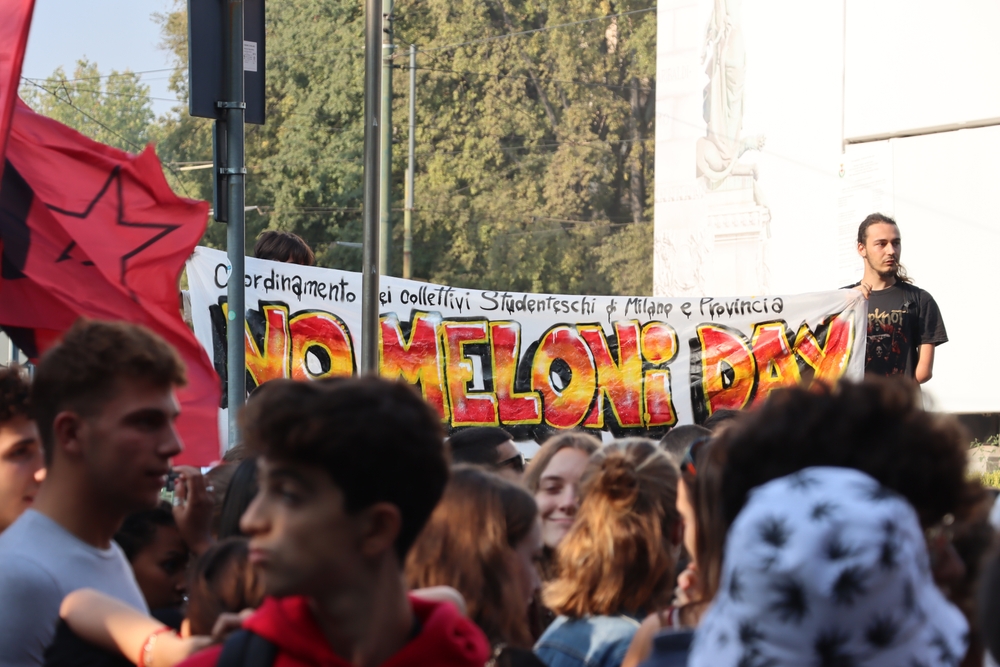Italy witnessed high-tension protests in over 30 cities as students took to the streets to demand improved education, safer school facilities, mental health resources, and increased funding. The demonstrations targeted the government and the controversial Valditara reform, with banners declaring, “Every day is No Meloni Day.” Protesters symbolically burned copies of the law and effigies of ministers, staining their photos with red paint. In Turin, clashes between students and police resulted in 15 officers being hospitalized after a makeshift explosive released irritant fumes.
In Turin, violent confrontations erupted, with damage to businesses and the burning of an effigy of Education Minister Giuseppe Valditara. Protesters also expressed solidarity with Palestine. In Bologna and Milan, banners were defaced with red paint, and eggs were thrown at a bank. Students accused the government of having “blood on its hands” due to military spending and workplace internships, deemed unsafe by critics. Symbolic burnings of the Valditara reform text occurred here as well. In Rome, demonstrators gathered outside the Ministry of Education—dubbed the “Ministry of War”—calling for free, inclusive public education, better mental health support, and greater student representation. Meanwhile, in Naples, protesters criticized the allocation of funds to war instead of education, amplifying their demands for systemic change.
Prime Minister Giorgia Meloni condemned the violence, calling it “unacceptable chaos caused by habitual agitators,” and noted the injuries sustained by law enforcement. Education Minister Giuseppe Valditara decried the defacement of his image alongside those of other ministers, emphasizing the need for a modernized, talent-focused education system. “Some still cling to outdated ideals of a uniform school system detached from enterprise,” Valditara remarked, advocating for diversity and innovation in education as key to nurturing individual talents.
The protests underscore a growing rift between the government and younger generations over education policy, with tensions unlikely to subside without significant reforms.

